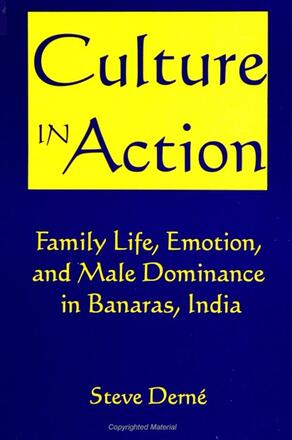
Culture in Action
Family Life, Emotion, and Male Dominance in Banaras, India
Alternative formats available from:
By examining how Hindu men talk about marriage and family, this book shows how culture reinforces male dominance in Hindu society.
Description
In Culture in Action Derne explores the interconnections between male dominance, joint-family living, Indian emotional life, and a cultural focus on group pressures. Derne emphasizes the Hindu focus on the social group, but shows that men often distance themselves from group culture by marrying for love, separating from their parents, or embracing closeness with their wives.
Derne's suggestion that Indian men's cultural focus on the group limits men's and women's strategies for breaking cultural norms offers a new approach to understanding how culture constrains. He shows how the child-rearing practices and emotional tensions associated with joint-family living shape Indians' group emphasis. This approach suggests that the Hindu focus on the group is intimately connected with male dominance.
Steve Derne is Assistant Professor of Sociology at State University of New York, College at Geneseo. He received the Society for Psychological Anthropology's 1991 Stirling Award for his work on family structure and self-conceptions.
Reviews
"This book should be read by anyone wanting to understand Hindu life—I found it fascinating. Derné has established unusually intimate interview relationships with his sizable sample of male respondents. He has managed to get inside their thought processes in a way no other writer on Indian family life has. Furthermore, he tries to explain why these men think and feel as they do. This book is an extraordinary achievement." — Pauline Kolenda, University of Houston
"It represents an insightful handling of men's talk and the underlying motivational/emotional system out of which such talk and attitudes emerge. It complements the recent literature that examines patriarchal institutions in India from a woman's perspective by drawing insights from the ways men talk about women and family values." — Susan Seymour, Pitzer College